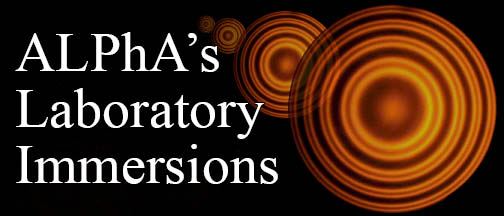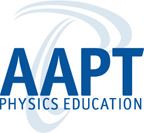- Home
- What We Do
- Laboratory Immersions
- Immersions 2019
- Imm2019WKU_Labview
LabVIEW for the Advanced Lab
Western Kentucky University, June 25-27, 2019
6 Seats
In many advanced physics laboratory experiments it is advantageous to be able to use a computer to acquire data or to control the apparatus. Situations often arise where the rate at which data should be collected, the quantity of data that is required, or the precision that is necessary make it difficult to carry out the experiment without the use of some form of automated data acquisition and control capacity. This Immersion will focus on how to effectively use LabVIEW in the advanced physics laboratory to help address these issues.The Immersion will follow the basic outline of a WKU course called Data Acquisition Using LabVIEW (PHYS 318). In this course students start out learning basic data acquisition concepts and how to program in LabVIEW using a device called a myDAQ available from National Instruments before moving on to more advanced projects. The myDAQ is a very general-purpose device with capability for analog input, analog output, digital IO, and counters/timers. Immersion participants will also use the myDAQ starting at a very basic level (no prior experience with LabVIEW is required) and build toward writing more complex data acquisition applications using a structured and modular software architecture.
Participants will start by building an application that will use software timing to measure and control the temperature of a small thermal device. We will progress toward using hardware timing to acquire time-series data and analyze the frequency content in an acoustic signal. Finally, we will develop an application to control and measure the angular position and velocity of a chaotic pendulum as a function of time. The specific measurements that participants will make are not necessarily as important as the techniques that will be learned which should be transferrable to specific experiments or measurements they may need to carry out in the future. Some flexibility on the applications studied at the Immersion may be possible for participants with a particular specific interest.
Computers with LabVIEW installed and myDAQ devices will be available if needed for workshop participants. However, it is recommended that participants bring a laptop and work with the host to get their own copy of LabVIEW installed prior to the Immersion event. A 45-day trial version of the software is available from National Instruments if you do not already have access.
The cost of the hardware used in the Immersion is rather small. The myDAQ device is available from National Instruments to universities for $358 and to students for $175. The techniques learned in the Immersion will also be applicable when using more sophisticated data acquisition hardware.

Doug Harper (BS WKU 1986, PhD Vanderbilt, 1991) returned to his alma-mater in 1991 to join the WKU physics faculty where he has served since and currently holds the rank of Professor. He teaches a variety of courses for physics majors including University Physics, Electronics, Electrodynamics, Computational Physics, Classical Mechanics and Quantum Mechanics. Since 2000 he has taught a course entitled “Data Acquisition Using LabVIEW” where physics, mechanical engineering, and electrical engineering students learn data acquisition concepts and how to program in LabVIEW in a project-based approach. Since 2009 this course has been part of National Instruments LabVIEW Academy. Professor Harper has used LabVIEW extensively in both teaching and research for over 25 years and is certified by National Instruments as a Certified LabVIEW Architect.
Professor Doug Harper, Department of Physics and Astronomy, Western Kentucky University, 1906 College Heights Boulevard, #11077, Bowling Green, KY 42101. Email: doug.harper@wku.edu. Phone: 270-745-6194.





